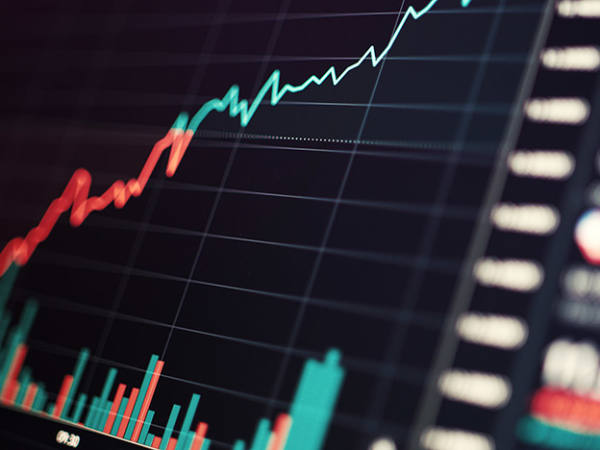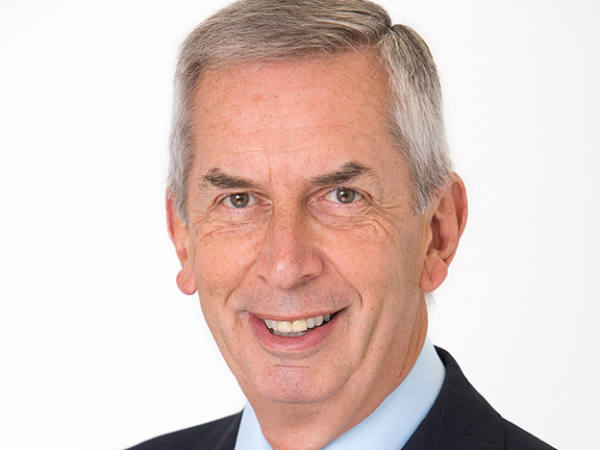A global equity fund should be at the heart of pretty much every investor’s portfolio, whether the core of a larger portfolio that also includes specialist funds, or the entire equity allocation of small and start-up portfolios. We have a selection of funds that should cover the different risk appetites and needs of a variety of investors. However, the idea here is not to hold many of these alongside each other but choose the one that best suits your requirements and hold other types of funds, maybe in smaller allocations, that offer exposure to different investments from these.
Scottish Mortgage Investment Trust (SMT)
Scottish Mortgage Investment Trust has an outstanding record of outperforming other global equities funds and broad global equity indices such as FTSE World and MSCI World and its ongoing charge of 0.34 per cent is one of the lowest of all active funds. It could be a good core holding in portfolios with a long-term investment horizon and higher-risk profile.
Although its long-term returns are outstanding, it can be volatile over shorter time periods, such as earlier this year for example. And its risk profile is arguably higher than that of many other global funds because as well as investing in listed equities, it also invests in unquoted companies. At the end of June it held 51 of these, which accounted for 21 per cent of its assets.
Scottish Mortgage is also very concentrated with its 10 largest holdings accounting for 43 per cent of its assets at the end of June and it has substantial allocations to what are considered to be more volatile sectors, such as technology.
For example, the trust’s largest holdings at the end of July were coronavirus vaccine producer Moderna (US:MRNA) and biotech company Illumina (US:ILMN), which accounted for 8.5 per cent and 6.6. per cent of its assets, respectively.
The trust’s investment team select investments based on their individual characteristics. They favour strong, well run businesses which offer the best potential durable growth opportunities, and look to hold them for the long-term. They assess attributes such as the strength of companies’ managements, their competitive and financial positions, and the prospects for sales and margins.
A concern for investors is the forthcoming retirement of co-manager James Anderson at the end of April 2022, who has run the trust since 2000.
However, Baillie Gifford funds tend to be run via a team approach rather than just by one individual and remaining co-manager Tom Slater is also very experienced. He is head of US equities at Baillie Gifford, which account for a significant part of Scottish Mortgage Investment Trust’s assets, and he has worked at Baillie Gifford since 2000. He was deputy manager of the trust between 2009 and 2015, since when he has been joint manager. His areas of investment specialism include high-growth companies on public markets and private companies.
Mr Slater will be supported by Lawrence Burns, who was appointed deputy manager of the trust in March. He has worked at Baillie Gifford since 2009 and became a partner at the firm last year. His investment specialism is transformative growth companies.
Analysts at Winterflood commented at the time of Anderson’s retirement announcement in March: “We do not believe that James’s retirement should be a matter of concern for existing or potential shareholders in Scottish Mortgage Investment Trust. Tom Slater, the fund’s co-manager since 2015, is an experienced investor and we rate him highly. We do not foresee any change to the fund’s investment approach or rationale as a result of the forthcoming change to its management.”
Rathbone Global Opportunities (GB00BH0P2M97)
Rathbone Global Opportunities has a strong track record of outperforming global indices such as MSCI World and FTSE World, and many other global equities funds. Its lead manager, James Thomson, and co-manager, Sammy Dow, look to invest in innovative and scalable businesses listed in developed markets that are growing fast and shaking up their industries. They want to hold companies that are easy to understand, different to their competitors, durable against change and difficult to imitate. And they like them to have a plan to grow rapidly without running out of money or overstretching their resources.
They are willing to invest in companies of all sizes and at the end of June the fund had about three-quarters of its assets in large companies and 22 per cent in mid-sized ones, an area the managers particularly favour.
To reduce risk, Thomson and Dow hold a defensive bucket of companies with slow and steady growth that should be less sensitive to the economy.
Although Rathbone Global Opportunities has a global remit, nearly two-thirds of its assets were in the US at the end of July, but it is well-diversified across sectors. Consumer companies accounted for about a quarter of its assets, technology firms 19 per cent, financials 17 per cent and industrials 16 per cent.
Examples of holdings at the end of July are Sartorius Stedim Biotech (FRA:DIM) and PayPal (US:PYPL) which accounted for 2.9 per cent and 2.61 per cent of the fund's assets, respectively.
Lindsell Train Global Equity (IE00BJSPMJ28)
Lindsell Train Global Equity’s short-term cumulative performance figures don’t look good against those of broad global indices such as MSCI World and the Investment Association (IA) Global sector average. This is largely due to slight underperformance so far this year, and in 2020 and 2019, for reasons including the fund’s focus on resilient, high-quality businesses rather than economically sensitive sectors. It also has very little exposure to tech stocks and no exposure to the so-called FAANGs – Facebook (US:FB), Amazon.com (US:AMZN), Apple (US:AAPL), Netflix (US:NFLX) and Alphabet (US:GOOGL). Read more on this in Explaining Lindsell Train's underperformance (IC, 20.08.21).
Rather, its largest holdings at the end of July included Diageo (DGE), Heineken (NET:HEIA) and London Stock Exchange (LSEG) which accounted for 8.73 per cent, 7.57 per cent and 7.17 per cent of its assets, respectively.
Over the long term, the fund, which is run by highly regarded manager Nick Train alongside Michael Lindsell and James Bullock, has a strong performance record. So it is still worth considering as a reasonably defensive core portfolio holding if you have a long-term investment horizon and can sit through periods of relative underperformance. But don’t hold both it and another fund run by the same manager such as Finsbury Growth & Income Trust (FGT), which we also include in this list, as they have a number of holdings in common.
Lindsell Train Global Equity’s managers look to invest in companies with sustainable business models and/or established brands. And they like them to have a record of long-term durability in cash and profit generation.
The fund has a particularly heavy weighting to consumer companies, which accounted for half of its assets at the end of July. It typically has a very concentrated list of between 20 and 30 holdings. Although this increases concentration risk, this is mitigated by the fact that these are typically large, global liquid companies. Its managers also don’t often buy and sell investments, meaning that trading costs eat less into returns.
Jupiter Global Value Equity (GB00BF5DRJ63)
Jupiter Global Value Equity Fund’s managers, Ben Whitmore and Dermot Murphy, invest in companies they think trade at prices that do not reflect their value. As not all lowly-valued shares make good long-term investments, the fund’s investment team carefully weighs up the price they pay for a share against their view of the quality of the company’s business. And they pay great attention to the broader environmental, social and governance characteristics of companies, seeking firms that can balance a variety of stakeholder interests and achieve attractive sustainable returns.
Their investment process includes looking in depth at a stock’s financial history and franchise quality, with an emphasis on balance sheet strength, strong conversion of profits into free cash and high standards of corporate governance. And to manage risk they focus on companies that can demonstrate both strong balance sheets and low valuations, while ensuring that the fund’s overall portfolio has a diverse set of uncorrelated risks.
Jupiter Global Value Equity only launched in March 2018 but Whitmore, who is head of strategy for value equities at Jupiter, is a seasoned value investor who has outperformed even when this style of investing isn’t in favour, as demonstrated by funds such as Jupiter UK Special Situations (GB00B4KL9F89).
Jupiter Global Value Equity offers exposure to different stocks and has a fairly different geographic allocation to many other global funds. For example, only 15 per cent of its assets were in North America at the end of July. Its 10 largest holdings included Finnish technology company Nokia (FIN: NOK1V), oil major BP (BP.) and financial services provider AIB (IRE:A5G) which accounted for 4.1 per cent, 3.6 per cent and 3.1 per cent of its assets, respectively.
The fund, perhaps not surprisingly in view of its value investment approach, has done well over the past year against broad global indices and the IA Global sector average. But value investing goes through periods of under performance and has generally not done well over the past decade. It can also take time for value equities’ prices to reflect their worth. So if you invest in this fund you should have an investment horizon of five years or preferably longer, and a high risk appetite.
Stewart Investors Worldwide Sustainability (GB00B7W30613)
Stewart Investors Worldwide Sustainability aims for growth over the long term, and is run by Nick Edgerton and Asia specialist David Gait. They invest in companies they think are good quality, and can benefit from and contribute to the sustainable development of the countries they operate in. When trying to select such companies, they assess the quality of their managements, social usefulness, environmental impacts and efficiency, responsible business practices, finances and financial performance.
At the end of June the fund was largely invested in companies with net cash balance sheets. The managers also reported that their holdings “are not over reliant on government action or support, and the [fund] is predominantly invested in companies that historically show strong pricing power and resilience in a variety of economic conditions. About 45 per cent of [its assets] remain invested in companies with some form of shareholding steward, either a family, founder or foundation, who has guided their company through cycles and sometimes generations.”
As well as taking sustainability criteria into consideration, this fund differs from other global funds and indices in terms of its asset allocation and holdings. For example, at the end of July the fund had 31.5 per cent of its assets in North America but shares listed in this region accounted for 62.5 per cent of MSCI AC World index, according to First Sentier Investors. And Stewart Investors Worldwide Sustainability had 30.3 per cent of its assets in Europe and the Middle East in contrast to the index’s weighting to these areas of 13.2 per cent.
The fund was also overweight information technology and health care relative to the index, and its 10 largest holdings were completely different.These included cyber security Fortinet (US:FTNT), safety device provider Halma (HLMA) and healthcare equipment company DiaSorin (ITA:DIA).
This means that it could also be an option for investors looking for something different with a more defensive profile. In keeping with the Stewart Investors investment style, the fund tends to do better in falling markets and can lag strongly rising ones. For example, in 2018 when MSCI World index and the IA sector average recorded negative returns, Stewart Investors Worldwide Sustainability returned 0.51 per cent, and lagged them in 2019 albeit with a double digit return of 12.4 per cent. But the fund can also do well when markets are rising, for example, with a return of 20.86 per cent against 12.32 per cent for MSCI World in 2020.
| Cumulative total returns | ||||
|---|---|---|---|---|
| Fund/benchmark | 1yr (%) | 3yr (%) | 5yr (%) | 10yr (%) |
| Scottish Mortgage Investment Trust share price | 42.81 | 148.26 | 355.37 | 989.15 |
| Jupiter Global Value Equity | 33.53 | 16.67 | ||
| Lindsell Train Global Equity | 11.68 | 28.46 | 98.59 | 395.11 |
| Rathbone Global Opportunities | 25.11 | 62.96 | 141.08 | 383.37 |
| Stewart Investors Worldwide Sustainability | 33.65 | 49.31 | 85.56 | |
| MSCI World index | 26.25 | 43.50 | 90.01 | 272.11 |
| FTSE All World index | 25.06 | 40.82 | 84.93 | 243.58 |
| IA Global sector average | 26.45 | 42.27 | 84.90 | 215.50 |
| Source: FE Analytics as at 31 August 2021 | ||||











